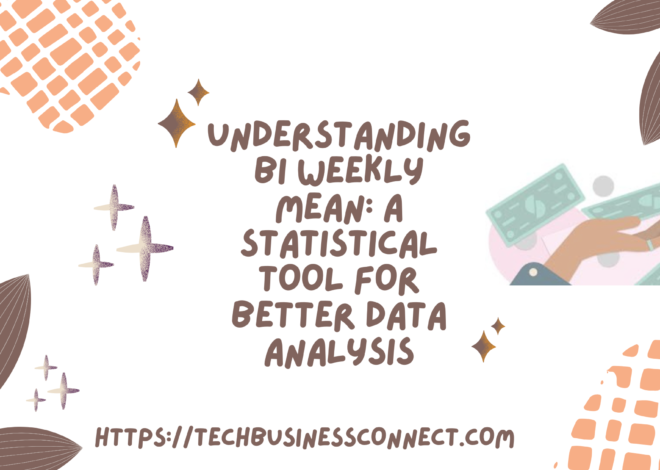
Understanding Mortgagees: A best Comprehensive Guide in 2024
When purchasing a property, the term “mortgage” often comes into play. It is an agreement that allows buyers to borrow money from a lender to buy a home. However, to understand the dynamics of this financial arrangement fully, it’s crucial to comprehend the role of the parties involved, specifically the mortgagee. This article aims to provide an in-depth understanding of who mortgagees are, their rights and responsibilities, the types of mortgagees, and their significance in the real estate and financial industries.
Who is a Mortgagee?
A mortgagee is a financial institution or an individual lender that provides a loan to a borrower, known as the mortgagor, to purchase real estate. In simpler terms, the mortgagee is the lender. This lender could be a bank, credit union, or private lending entity. The mortgagee’s primary function is to finance the mortgagor’s property purchase while retaining a security interest in the property until the loan is repaid.
The relationship between the mortgagee and the mortgagor is mutually beneficial. The mortgagor receives the necessary funds to buy a home, while the mortgagee earns interest on the loan provided. If the mortgagor defaults on the loan, the mortgagee has the right to foreclose on the property, sell it, and recover the loan amount.
Types of Mortgagees
Mortgagees can be categorized based on the nature of their operations and the type of mortgages they offer. Here are some common types of mortgagees:
- Banks and Credit Unions: Traditional banks and credit unions are among the most common types of mortgagees. They offer various mortgage products with different interest rates, terms, and conditions. Banks have stringent qualification criteria, and they assess borrowers’ creditworthiness, income, and financial history before approving a mortgage.
- Mortgage Companies: These are specialized financial institutions that focus solely on providing mortgage loans. They often work with a variety of investors and funding sources to offer a wide range of mortgage options. Mortgage companies can sometimes offer more competitive rates and terms than traditional banks.
- Government-Sponsored Entities (GSEs): In some countries, government-sponsored entities like Fannie Mae and Freddie Mac in the United States play a significant role as mortgagees. These entities do not directly provide loans but purchase mortgages from other lenders, thus providing liquidity and stability to the mortgage market.
- Private Lenders: These can include individuals or private companies that offer mortgage loans. Private lenders may have more flexible lending criteria, making them an option for borrowers who may not qualify for traditional bank loans. However, these loans often come with higher interest rates due to the increased risk for the lender.
- Non-Banking Financial Companies (NBFCs): In many countries, NBFCs play a significant role as mortgagees. They provide loans to individuals and businesses, often focusing on niche markets or specific types of properties.
Rights and Responsibilities of Mortgagees
Mortgagees have a set of rights and responsibilities that govern their relationship with the mortgagor. Understanding these can help both parties maintain a healthy and transparent financial relationship.
Rights of Mortgagees:
- Right to Interest Payments: The primary right of the mortgagee is to receive regular interest payments from the mortgagor. The interest rate and payment schedule are outlined in the mortgage agreement.
- Right to Foreclosure: If the mortgagor defaults on their loan payments, the mortgagee has the right to initiate foreclosure proceedings. This legal process allows the mortgagee to take possession of the property and sell it to recover the outstanding loan amount. Foreclosure is a last resort and typically occurs after multiple missed payments and attempts to resolve the issue.
- Right to Insurance Proceeds: In the event of property damage, such as fire or natural disaster, the mortgagee has a right to any insurance proceeds to ensure that the property is repaired or restored. This protects the mortgagee’s interest in the property.
- Right to Inspect the Property: Mortgagees have the right to inspect the property to ensure it is being maintained and is not subject to any damages or violations. This is crucial in safeguarding the value of the property, which serves as collateral for the loan.
- Right to Collect Escrow Payments: Many mortgage agreements include an escrow account for property taxes and insurance. The mortgagee has the right to collect these payments from the mortgagor and disburse them accordingly to ensure that these obligations are met.
Responsibilities of Mortgagees:
- Duty to Disclose Terms: Mortgagees are obligated to provide clear and comprehensive information about the mortgage terms, including interest rates, payment schedules, fees, and penalties. Transparency is crucial to ensure that the mortgagor understands their financial commitment.
- Fair Lending Practices: Mortgagees must adhere to fair lending practices, avoiding discrimination based on race, color, religion, sex, national origin, marital status, or age. They must comply with regulations set forth by relevant authorities to promote equal opportunities for all borrowers.
- Proper Management of Escrow Accounts: If a mortgage includes an escrow account, the mortgagee must manage it properly. This includes ensuring that property taxes and insurance payments are made on time and providing accurate statements to the mortgagor.
- Timely Release of Lien: Once the mortgage is fully paid off, the mortgagee is responsible for releasing the lien on the property. This involves providing the necessary documentation to the mortgagor, allowing them full ownership of the property.
- Handling of Payments: Mortgagees must accurately record and apply payments made by the mortgagor to the loan balance. They should provide regular statements and maintain proper communication with the mortgagor regarding the loan status.
The Role of Mortgagees in the Real Estate Market
Mortgagees play a critical role in the real estate market. By providing the necessary funding for property purchases, they enable individuals and businesses to invest in real estate. This, in turn, drives demand and stimulates economic growth. The availability of mortgages allows more people to become homeowners, which has a significant impact on communities and the overall economy.
Mortgagees also contribute to market stability by setting lending standards and assessing the creditworthiness of borrowers. Through careful risk assessment, they ensure that only qualified borrowers receive loans, reducing the likelihood of defaults and foreclosures. This risk management is crucial in maintaining the health of the real estate and financial markets.
Challenges Faced by Mortgagees
While mortgagees play a vital role in the economy, they also face several challenges:
- Economic Fluctuations: Mortgagees are heavily influenced by economic conditions. During economic downturns, there may be an increase in loan defaults and foreclosures, which can impact the financial health of mortgage lenders.
- Regulatory Changes: The mortgage industry is subject to regulatory changes, which can impact lending practices, interest rates, and loan availability. Mortgagees must stay informed about these changes and adapt their operations accordingly.
- Competition: The mortgage market is highly competitive, with numerous banks, credit unions, mortgage companies, and private lenders vying for business. Mortgagees must offer competitive rates and terms to attract borrowers while managing their risk exposure.
- Technological Advancements: The rise of digital platforms and fintech companies has transformed the mortgage industry. Mortgagees must adopt new technologies to streamline their processes, improve customer experiences, and stay competitive.
Conclusion
Mortgagees are pivotal players in the real estate and financial markets, providing the necessary funding for property purchases and enabling individuals and businesses to achieve their homeownership and investment goals. By understanding the role, rights, and responsibilities of mortgagees, both borrowers and lenders can navigate the mortgage process more effectively.
The relationship between mortgagees and mortgagors is built on trust, transparency, and mutual benefit. As the mortgage industry continues to evolve, mortgagees must adapt to changing economic conditions, regulatory requirements, and technological advancements. By doing so, they can continue to play a crucial role in promoting homeownership, stimulating economic growth, and ensuring the stability of the real estate market.


